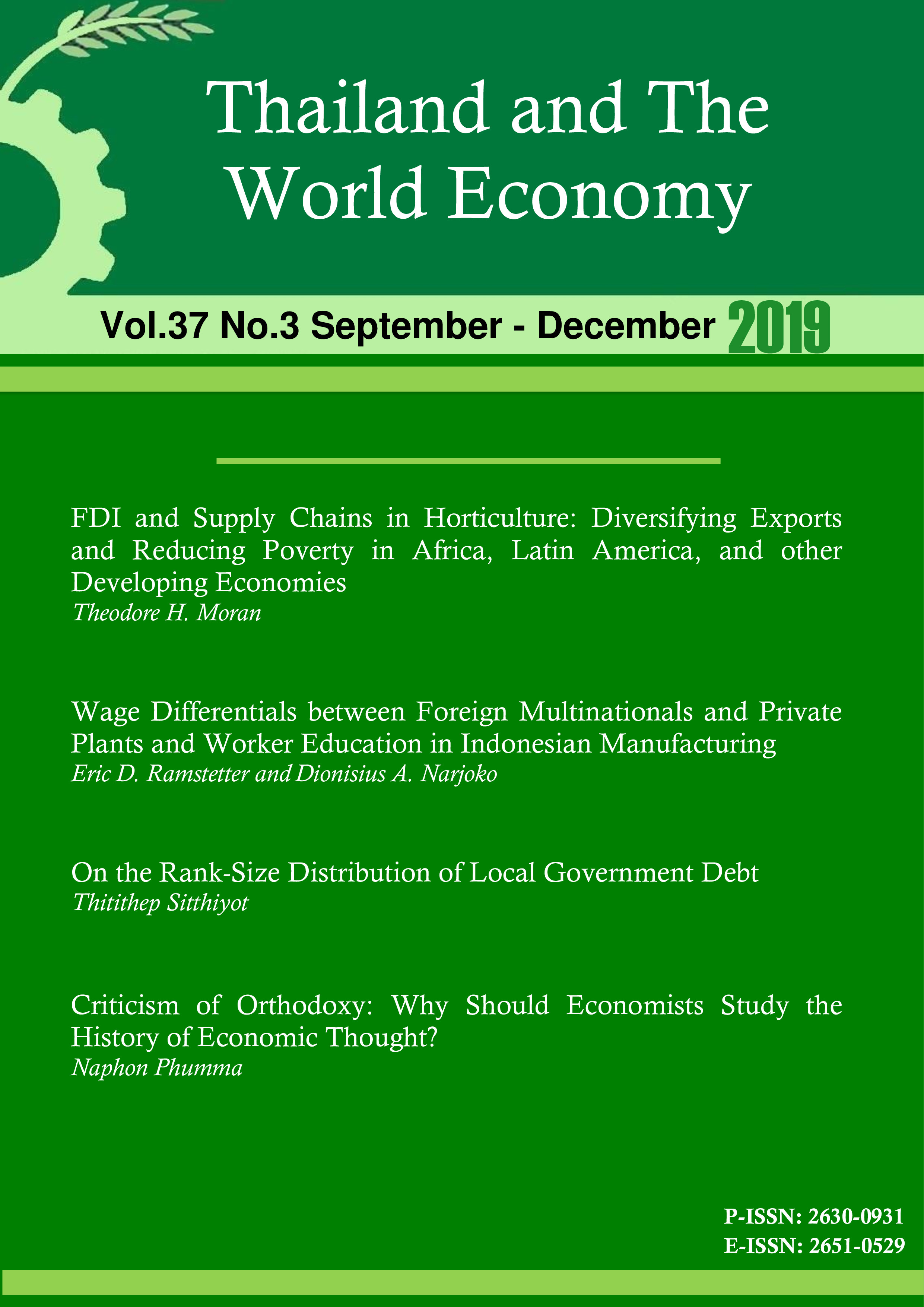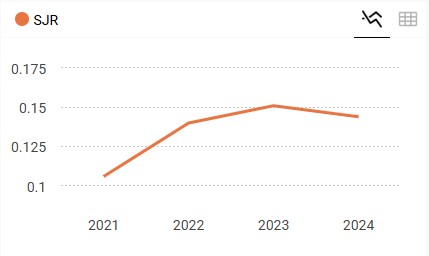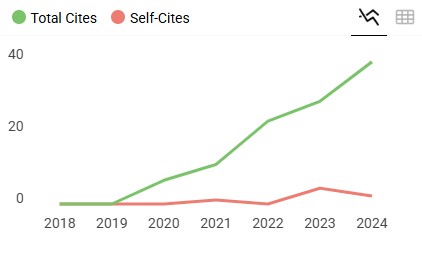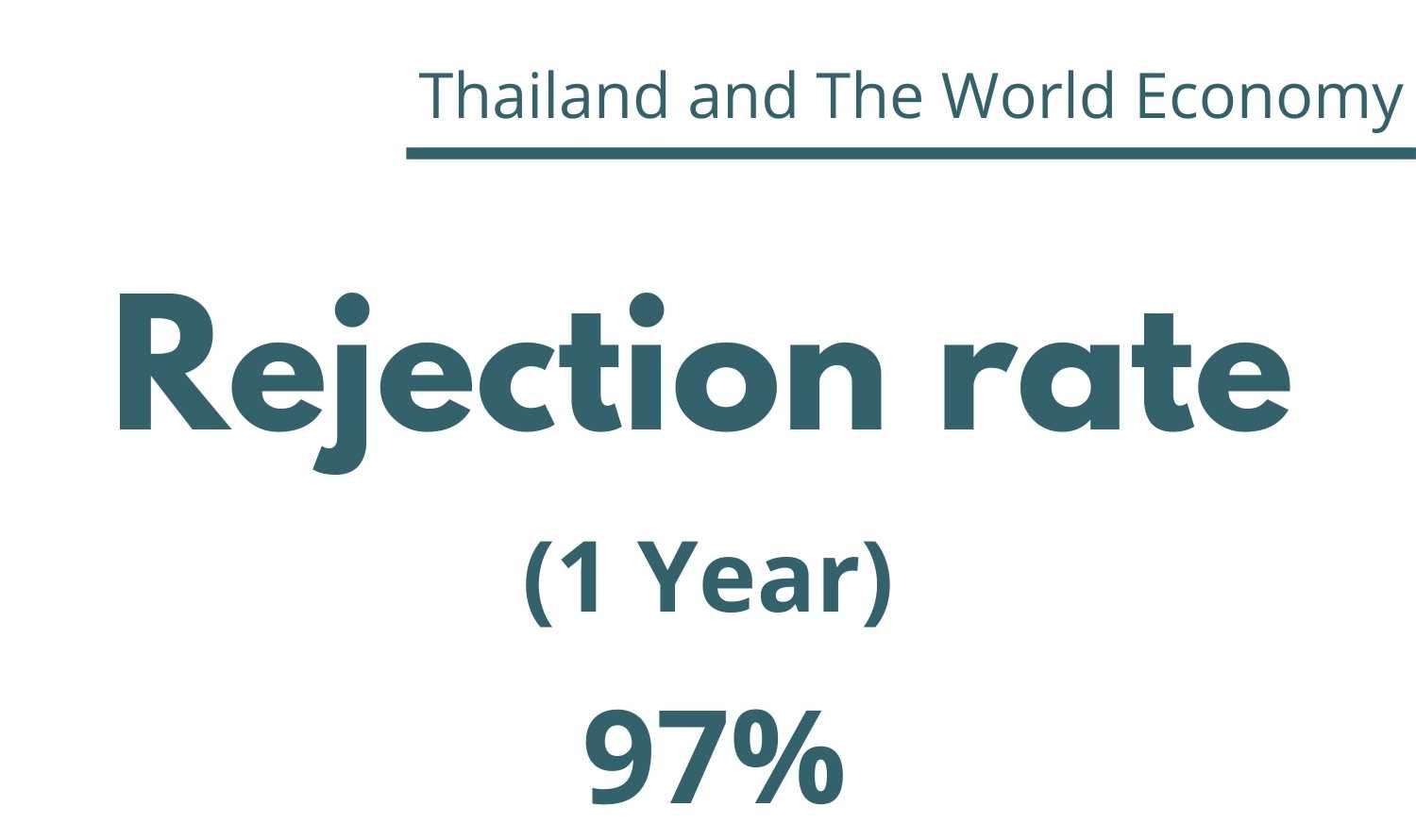Criticism of Orthodoxy: Why Should Economists Study the History of Economic Thought?
Keywords:
History of Economic Thought, Orthodox Economics, Methodology of EconomicsAbstract
Orthodox economists are not persuaded that the History of Economic Thought (HOET) deserves better than the genealogy of economics because of the domination of orthodoxy in their minds. In order to persuade them that HOET is worthy of greater consideration and attention, I believe there is a need to shed light on the flaws of orthodox economics through examining HOET. In this paper, I argue that the logical positivism on which the methodology of orthodox economics was founded does not represent the only methodological foundation for economic knowledge. Historically, when the foundations of conflicting ideas are different, the economic knowledge arising from them is also different. Economic theories rise and spread; there are conflicts, and ideas decline. HOET can reveal that there are flaws in orthodox economics and economists can be reminded that the widespread acceptance of orthodox economics may indeed be only a temporary phenomenon.
References
Backhouse, R. (2002). The penguin history of economics. London: Penguin Books
Backhouse, R., & Medema, S. (2009). Retrospectives: On the definition of economics. The Journal of Economic Perspectives, 23(1), 221-233.
Blaug, M. (1990). On the Historiography of Economics. Journal of the History of Economic Thought, 12(1), 27-37.
Blaug. M. (1992). The methodology of economics: Or how economists explain. Cambridge: Cambridge University Press.
Blaug, M. (2001). No history of ideas, please, we’re economists. Journal of Economic Perspectives, 15(1), 145-164.
Boland, L. (1981). On the futility of criticizing the neoclassical maximization hypothesis. American Economic Review, 71(5), 1031-1036.
Bornemann, A. (1976). The Keynesian paradigm and economic policy. The American Journal of Economics and Sociology, 35(2), 125-136.
C ASEAN. (2017). Globalization’s implications towards a connected ASEAN. Retrieved from http://www.c-asean.org/blog/2016/09/globalizations-implications
Caldwell, B. (2013). Beyond Positivism: Economic Methodology in the Twentieth Century. London: Routledge.
Caldwell, B. (2013). Of positivism and the history of economic thought. Southern Economic Journal, 79(4), 753-767.
Caserano, F. (1983). On the role of the history of economic analysis. History of Political Economy, 15(1), 63-82.
Colander, D., & Holt, R. (2004). The changing face of mainstream economics. Review of Political Economy, 16(4), 485-499.
Corry, B. (1975). Should economists abandon hope?. History of Political Economy, 7(2), 252-260.
Dequech, D. (2007). Neoclassical, mainstream, orthodox, and heterodox economics. Journal of Post-Keynesian Economics, 30(2), 279-302.
Dow, S. (1997). Mainstream economic methodology. Cambridge Journal of Economics, 21(1), 73-93.
Friedman, M. (1953). Essays in positive economics. Chicago: University of Chicago Press.
Fusfeld, D. (2008). Methodenstreit, eds. by Durlauf, S.N. and Blume, L.E. in The new Palgrave dictionary of economics. London: Palgrave Macmillan.
Goodwin, C.D. (2008). History of economic thought, eds. by Durlauf, S.N. and Blume, L.E. in The new Palgrave dictionary of economics. London: Palgrave Macmillan.
Gruchy, A. (1949). J.M. Keynes’ concept of economic science. The Southern Economic Journal, 15(3), 249-266.
Heilbroner, R. (1997). Teachings from the worldly philosophy. New York: W. W. Norton and Company.
Hodgson, G. (2001). How economics forgot history: The Problem of Historical Specificity in Social Science. London: Routledge.
Keynes, J. (1936). The general theory of employment, interest and money. London: Macmillan.
Keynes, J. (1973). The collected writings of John Maynard Keynes vol.13, ed. by Moggridge, D. in The General Theory and After Part 1 Preparation. London: Macmillan & Cambridge University Press.
Kuhn, T. (1962). The structure of scientific revolution. Chicago: The University of Chicago Press.
Lipsey, R.G. (2008). Positive economics, eds. by Durlauf, S.N. and Blume, L.E. in The new Palgrave dictionary of economics. London: Palgrave Macmillan.
Louzek, M. (2011). The battle of methods in economics: The classical methodenstreit - Menger vs. Schmoller. The American Journal of Economics and Sociology, 70(2), 439-463.
Mankiw. G. (2017). Principles of economics. Boston: Cengage Learning.
Marx, K. (1992). Capital volume I. London: Penguin Classics.
McConnell, C., Brue S., & Flynn S. (2014). Economics: Principles, problems, and policies. New York: McGraw - Hill.
McCloskey, D. (2008). Rhetoric, eds. by Durlauf, S.N. and Blume, L.E. in The new Palgrave dictionary of economics. London: Palgrave Macmillan.
Menger, C. (1985). Investigations into the method of the social science. New York: New York University Press.
Mill, J. (1967). On the definition of political economy and on the method of investigation proper to it. Essays on Some Unsettled Questions of Political Economy, reprinted in The collected works of John Stuart Mill vol.4, ed. by Robson, J.M. Toronto: University of Toronto Press.
Minsky, H. (2008). John Maynard Keynes. New York: McGraw - Hill.
Ricardo, D. (1973a). The work correspondence of David Ricardo (Vol.6), ed. by Sraffa, P. in Letters 1810 – 1815. Cambridge University Press.
Ricardo, D. (1973b). The work correspondence of David Ricardo (Vol.9), ed. by Sraffa, P. in Letters July 1821 – 1823. Cambridge University Press.
Ricardo, D. (1996). The principles of political economy and taxation. New York: Prometheus Books
Roncaglia, A. (1996). Why should economists study the history of economic thought?. The European Journal of History of Economic Thought, 3(2), 296-309.
Rothschild, E. (1994). Adam Smith and the invisible hand. American Economic Review, 84(2), 319-322.
Ruffin, R.J. (2002). Ricardo’s discovery of comparative advantage. History of Political Economy, 34(4), 727-748.
Schumpeter, J. (2006). History of economic analysis. New York: Oxford University Press.
Screpanti, E., & Zamagni, S. (2005). An outline of the history of economic thought. New York: Oxford University Press.
Solow, R. (1956). A contribution to the theory of economic growth. The Quarterly Journal of Economics, 70(1), 65-94.
Stigler, G. J. (1969). Does economics have a useful past?. History of Political Economy, 1(2), 217-230.
The Economist. (2016). Financial stability: Minsky’s moment. Retrieved from http://www.economist.com/news/economics-brief/21702740-second-article-our-series-seminal-economic-ideas-looks-hyman-minskys.
Vaughn, K. (1993). Why teach the history of economics?. History of Political Economy, 15(2), 174-183.
Viner, J. (1955). Studies in the theory of international trade. London: George Allen & Unwin.
Weintraub, E. (2002). Will economics ever have a past again?. History of Political Economy, 34(Annual Supplement), 1-14.
World Trade Organization. (2017). The case for open trade. Retrieved from https://www.wto.org/english/thewto_e/whatis_e/tif_e/fact3_e.htm.










